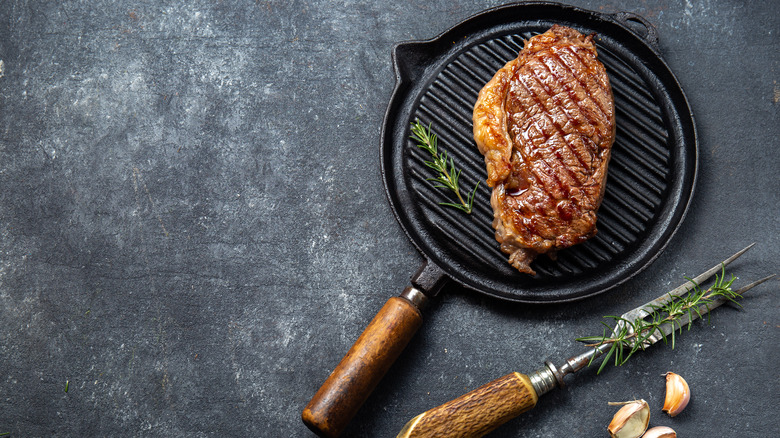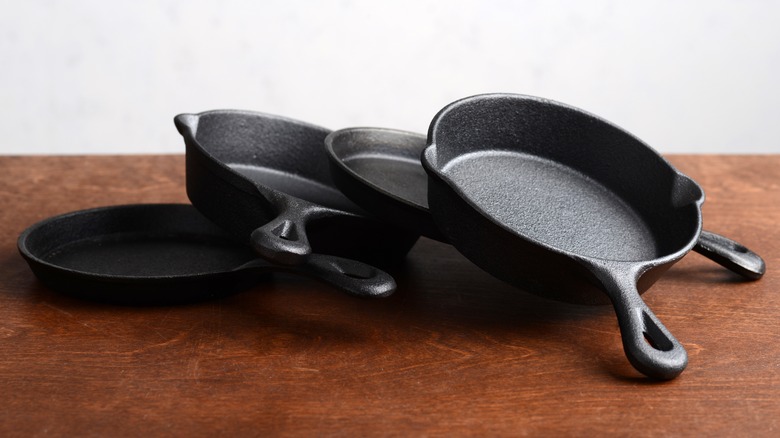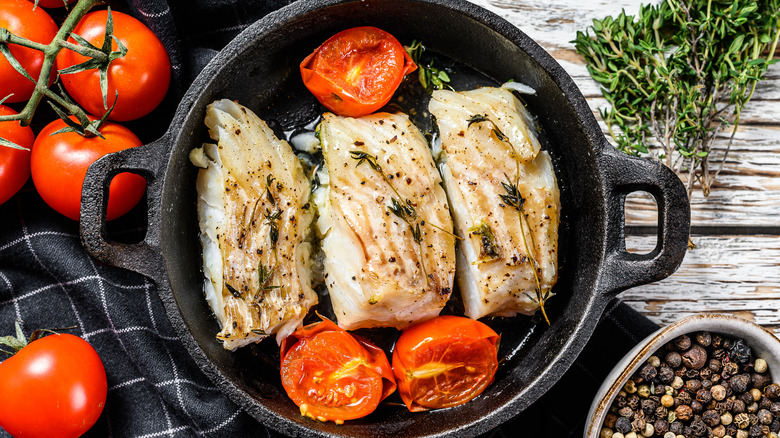Will Cooking With Cast Iron Actually Leach Metal Into Your Food?
Cast iron has earned a reputation for being a cooking tool that does it all. You can sear, fry, and even bake with this pan, making it worth the investment in many ways. It's also handy for home defense if you live in a cartoon.
However, cast iron is delicate and needs to be handled accordingly. It should never be put in the dishwasher, which is a drawback for some who prefer to clean up as easily as possible. Plus, it must be seasoned before its first use and periodically after that, an extra step that not everyone loves.
Beyond that, there have been rumors that cast iron can leach metal into your food as it cooks. The short answer is yes, this is possible, but it's not always bad. It might sound scary, but you can benefit from the iron coming into contact with your perfectly seared steak, though it can be harmful to some.
Cast iron will result in iron in your food
It sounds bizarre, but it does make sense: cooking with a cast iron skillet could potentially mean a bit of iron absorbs into your dish, impacting its nutritional value. One study from the 1980s found that foods cooked in cast iron "contained significantly more iron" than foods cooked in other pans. When the iron gets absorbed during cooking, the food boasts extra iron, which certain people benefit from. Those who are menstruating or who have iron deficiencies could benefit from additional iron in their foods, as well as those who follow diets that typically include less iron, such as vegans and vegetarians.
However, if you're not someone with an iron deficiency, you might want to keep tabs on how much iron you consume. You can check nutrition labels or learn through a regular blood test (often given during annual physicals) how much iron your body has, which will help keep track of it. If you're prone to high iron levels, you'll want to reconsider cooking with a cast iron skillet; too much iron can cause serious health problems.
Side effects of too much iron
The average female needs about 18 milligrams of iron daily, while the average male needs about 10 milligrams. If you consume too much iron, you'll feel the side effects; the National Institutes of Health says immediate effects include nausea, vomiting, and diarrhea. Consuming iron in "extremely high doses," referring to hundreds of milligrams or more, can lead to organ failure and even death.
Cooking or baking in cast iron will not result in an extremely high dose of the mineral. However, since children need only around seven milligrams of iron daily, Food Network says you should not cook every meal for your child in a cast iron skillet because of the amount of iron that could absorb into the food. With that said, cast irons are widely used in households and restaurants and most cases, do not cause issues. However, if you have hemochromatosis, a disease in which the body absorbs too much iron from food, the University of Virginia says you should avoid cooking with cast iron pans.


